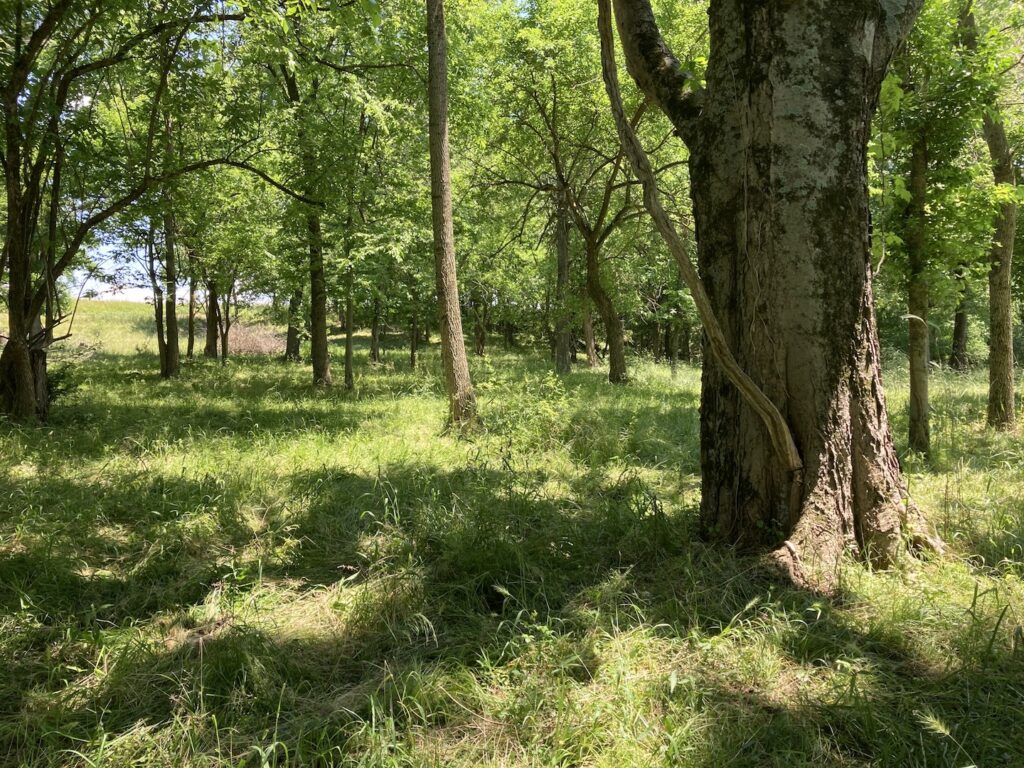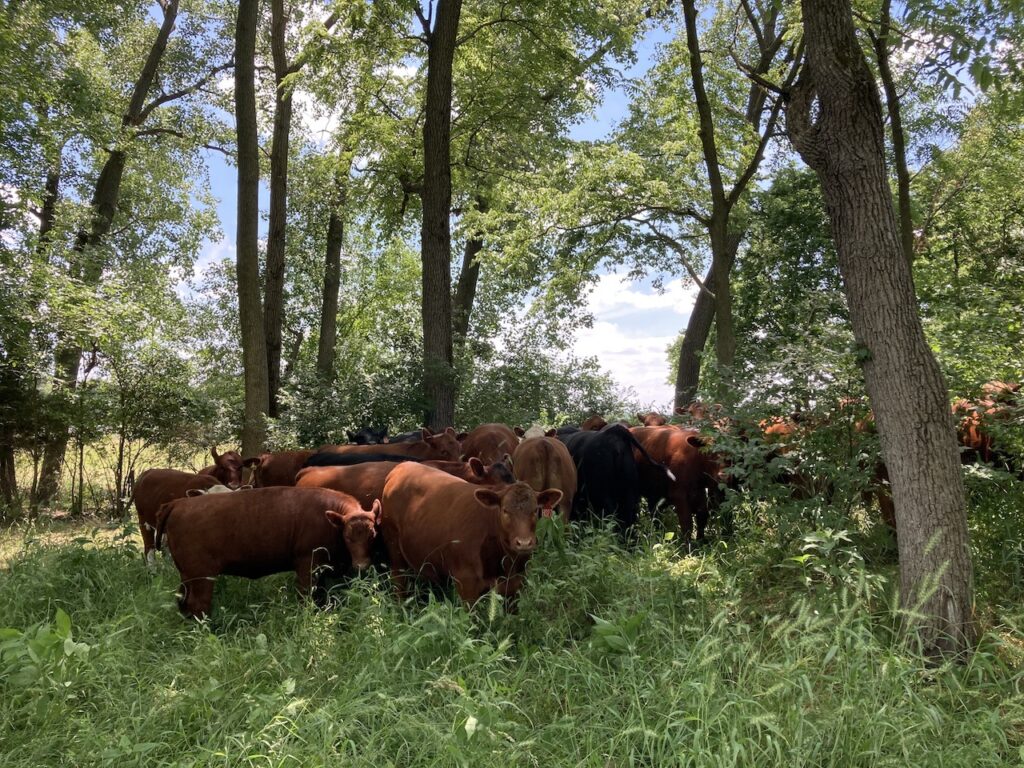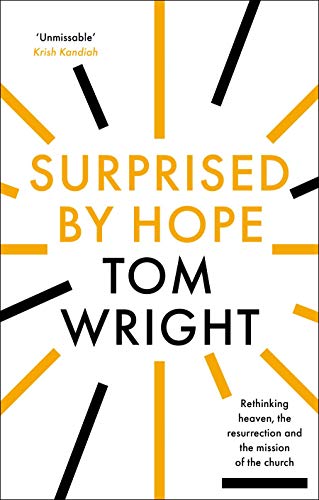I’ve written from time to time about my challenges in finding a church that felt complete and whole to me. Not surprisingly, a big part (but not the only part!) of that challenge has been my unwillingness to be committed to a church where God’s Creation is not seen as significant to God’s purposes.
Yet I long for community around faith in the God of the whole Bible and in Jesus.
I have asked myself whether I could be wrong and misguided. I know that many Christians find deep satisfaction in their church lives. In The Screwtape Letters, C.S. Lewis portrays a junior devil being advised to encourage his assigned human target to search far and wide for a “suitable” church. This, it is suggested, will make the human a critic when God actually wants humans to be pupils. Is that me? Could I have the wrong expectations for what church is supposed to be? Are my expectations too high? Should I work to be a voice within a church for paying more attention to Creation? I know good and faithful people who are doing that.
Here’s the thing – I’m in my late 50s. I know what resonates and what doesn’t. I have sat in the pews of many churches and found myself feeling empty and even heartsick. Even as I know others find deep meaning in churches, I must listen to myself. My mind, heart, and body are telling me something that I must finally respect.
I am indeed hungry for a Christian community of faith. But faith communities as they are commonly done in churches don’t seem to be the right place for me. That leaves me with several options. One would be continuing to search for the right one. Another is to give up on having a faith community.
A third is coming up with something different.
For more than a year I’ve found myself musing on what something different might look like. From what we know of the early gatherings of believers from the New Testament and from the examples of the Quakers and Amish, it’s clear that the modern, mainstream approach to church is not the only way to do a faith community. (For much more provocative thoughts, check out Pagan Church by Frank Viola).
So here I put myself out on a limb. I will share the unique elements of the faith community I’d like to see that I have come up with to this point. Down the road, I’d like to flesh out each element in greater detail and explain why I believe each is important to have. Here I just want you to see how everything fits together as a whole.
(One last word before you read the unique elements – holding everything together would be worship and discipleship of Jesus and the God of the Bible and of Creation with communion and baptism.)
Focus on personal transformation to whole holiness: The faith community would invest significantly in enabling its members to become more holy in every aspect of their lives. There would be concerted efforts made to provide members with the guidance, support, and spiritual development tools to open themselves to the Spirit, to become more like Jesus, and to live out the fruits of the Spirit that God offers. After several years as a member, a person could literally not be the same person they were when they joined.
Instruction in Kingdom living: God loves us and this world. How we live in it matters deeply. Yet never before have so many people lacked fundamental knowledge about the craft of living. There is an infinite amount of wisdom to be gained from the Bible and from people who approach living with compassion and wisdom. This faith community would invest in helping its members grow in Kingdom living in every aspect of life. Marriage. Money. Growing food. Cooking. Parenting. Prayer. Art. Advocacy. Friendship. Carpentry. Productive conflict. Conversation and the use of words. The fellowship would be a center for just and satisfying living skills that would benefit members and other people in the local community.
Tapping Kingdom gifts: This faith community would collectively help each member identify and use their unique spiritual gifts and their other gifts for God’s kingdom within the faith community and in their lives in God’s world. The community as a whole would honor and celebrate each and every member’s gifts and how they are being used on a regular basis. Spiritual entrepreneurship would be encouraged and fostered. The community would seek to grow each person’s gifts and their use of those gifts. The faith community would be a dynamic place where people become better and fuller versions of themselves.
Rich with art and song: We are made in the image of a creating Creator God. We are meant to be creative in ways that are generous, good, and just. Art can also free and open our hearts.The community I envision would be a vibrant place of diverse music and artistic expression by adults and children. Each member’s voice and creativity would be encouraged, valued and heard. There would, for example, be a wide variety of music – traditional, modern, acoustic, chants, jazz, international, and of all emotions.
Surprise, variety, and diversity of tone: Every month there should be surprise and freshness in the format and tone of the worship. While there should be some consistent elements and themes, there should also be great variation and creativity. Members should arrive in expectation of surprise and engagement with an infinite, surprising God. There should be services of lament as well as services of celebration and everything in between. Our lives, our relationship with God, and the books of the Bible itself are all complex and nuanced. Consider the emotions of Job, the Psalms, the prophets, and even Jesus. Worship should reflect that complexity and diversity.
Fellowship commitment to certain ways of living: I’ve been very struck by the concept of ordnung from the Amish. The ordnung is an unwritten set of guiding rules among a particular group of local Amish on how they will live. I am not suggesting that the community of faith I write of be like the Amish in terms of prohibiting electricity and the use of cars, for example. There should be freedom in many things. However, the community’s members should have a common commitment to living patterns that are consistent with the fellowship’s convictions. This doesn’t seem so far removed from the early house churches of the New Testament. One good example would be Sabbath – honoring the Sabbath should be something people of faith do because it honors God and it brings so many blessings. But there could be latitude for how exactly each family would actually carry that out. Does this all sounds cult-like or Puritanical? That’s not my intention, although I know what I suggest is radical. But imagine if a community of faith did their best to live out similar convictions outside in the world that were not only good for each person but also good for how the community as a whole functioned?
To build or not to build: There is value in having a building that is the center of a faith community’s gatherings. It puts the community on the physical and mental map of a community. But maintaining the building can draw away resources from actually living out God’s Kingdom. The Amish, for instance, don’t have church buildings but meet at each other’s homes. That might be one option. Another might be using a building as both community center and place of worship. Or perhaps a barn could function as meeting space, worship space, farm building, restoration hub, learning space, art space, and dance hall. In any case, there should be careful thought given to whether and how the community invests in a building.
Community common life reflect a 100% commitment to Kingdom living: As an example of this, common meals, like the Lord’s Supper and potlucks, should come from farms where God’s earth has been respectfully treated. If there is a church building, then it and its landscaping should be as Creation friendly as possible. Green burial would be the standard burial method.
Communal, interactive, creative worship: Worship should not be a passive, spectator experience. Members should be as involved as possible. There should be interaction along with singing by all attending and insights into the Bible. Hands-on activities, like foot-washing, should be used as much as possible. People should share insights from their own lives. In this community, the sacredness of the God of the universe would intersect with the real people the community brings together.
Membership means something: I envision people needing to acquire a base level of Bible and faith knowledge and committing to certain patterns of life before they would become members. To become a member, a person should first be given a thoughtful understanding of how the Bible works and what a whole faith looks like. There would be classes and mentorships. And, as per Hebrews 10:24-25, members would, like fitness buddies, goad and push each other towards good deeds and faithfulness while also encouraging and consoling each other when difficulties come. In a loving and engaging way, members should give and receive feedback on how they are living and contributing to the faith community. Yes, I know this sounds restrictive and perhaps exclusionary. It’s not intended to be that way. But it is intended for membership to mean something. The Christian faith is hurt deeply by card-carrying church members who act in ways that reflect badly on the faith. (Read more about lessons in membership from the history of a church in my previous post.)
A place of seeking, open discussion, and whole Bible inquiry: This would be a community where people could ask questions and seek God. Because Jesus’ Bible was the Old Testament, understanding how the whole Bible fits together and what wisdom we can gain from the whole Bible would be a fundamental and engaging part of the life of this faith community. I’ve been tremendously inspired by Tim Mackie and The Bible Project in this regard.
Creation as fundamental part of the whole faith-life: Creation would not be ignored nor denigrated in this faith community. It would be celebrated, savored, and cherished. As part of the whole range of member commitments would be a commitment to being as holy as possible in our interactions with God’s Creation. Members called to devote their lives to protecting and restoring Creation in the world as a ministry would be celebrated and supported just as much as anyone else called to live their life for mission.
Thoughtful, intentional planning for how the faith-life is shared: Sharing Jesus and the eternal life Jesus offers would be a key element of this faith community. Life skill classes and art demonstrations would be ways of attracting people just as would creative sharing of the Bible’s messages. Members gifted with teaching and explaining would be empowered to provide classes and other venues for engagement. There would be a system for how seekers would be welcomed and taught about the faith-life of this faith community.
A different kind of leader: Because this faith community would be worshipping and living out the Christian faith differently, the skill set and character of its leader or leaders would need to be different. Ideally, the leader or leaders would be deeply rooted in a whole understanding of the Bible and would help build the right “architecture” of the community while coaching and encouraging members to grow in their gifts and faith-lives. The leader or leaders would have little ego but would get the most joy out of seeing the community and its members having success as a community that learns and lives the faith together.
What to Call This Community?
For a while, I thought about calling this faith community a “whole faith church.” But now that seems needlessly provocative and limiting. “Church” also conveys expectations of what will and won’t be done. Rather than struggle against those expectations, I believe its better to use a fresh word that suggests something distinct.
The phrase “fellowship” seems better to me. “Fellowship” has strong Christian roots and a sense of common labor and work. But it does not carry with it long engrained assumptions about how it will be organized. There’s a freshness and unboundedness to it.
Here is a quote from a blog post of Grace Theological Summary that resonates with me. The post describes the origins of the Greek word we translate as “fellowship” and what Christian fellowship entails:
The word fellowship is derived from the Greek word koinonia. Koinonia can be defined as “holding something in common” and is specifically used 20 times in the New Testament (e.g. Phil. 2:1-2, Acts 2:42, 1 John 1:6-7). Koinonia describes the unity of the Spirit that comes from Christians’ shared beliefs, convictions, and behaviors. When those shared values are in place, genuine koinonia (biblical fellowship) occurs. This fellowship produces our mutual cooperation in God’s worship, God’s work, and God’s will being done in the world.
I love that phrase – “mutual cooperation in God’s worship, God’s work, and God’s will being done in the world.” Even the term “cooperation” suggests an interlocking of efforts and resources for a common goal. “Work” and “God’s will being done” are even stronger in conveying the focus of the fellowship – a common commitment to down-to-earth action springing out of faith.
The faith-life of early Christians was known as the Way. We need to again convey being a believer as being a way of understanding God and the world and a way of loving God and God’s world in our everyday lives.
Fellowship, it seems to me, suggests a group of people committed to some task or way, like the diverse fellowship we see in Tolkien’s The Lord of the Rings. The word carries with it notes of engagement with life with a larger purpose. It also suggests mutual dependence in very practical, real ways.
That feels right. That’s the kind of faith community I am looking for.
How about you?







